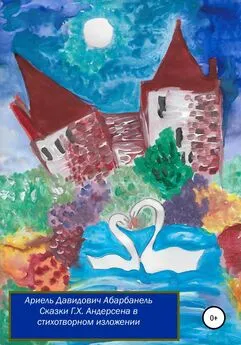Ариель Абарбанель - Manchester Diary
- Название:Manchester Diary
- Автор:
- Жанр:
- Издательство:неизвестно
- Год:2020
- ISBN:978-5-532-04047-2
- Рейтинг:
- Избранное:Добавить в избранное
-
Отзывы:
-
Ваша оценка:
Ариель Абарбанель - Manchester Diary краткое содержание
Manchester Diary - читать онлайн бесплатно ознакомительный отрывок
Интервал:
Закладка:
Introduction
The thick tires of a small children's bike rustle on the cracked asphalt of Courland Street. Most likely, the month of April began – the sun is not only shining, but also warming pleasantly. Blackened snow with frosty heaps lies along the wide sidewalk, slowly evaporating and melting. Pleasant cold freshness penetrates through the nostrils and mouth into the lungs, dizzy joyfully. Yellow houses are approaching the boy from above, left and right, and a bicycle with thick tires inexorably carries him forward, towards the long-ago covered with sand and earth of the Tarakanovka river. The boy boldly pedals and a bicycle with a picture of a bear on the frame sleeve carries him towards the future, which has opened its arms. He deftly manages to keep his balance on the remaining two wheels, despite the fact that the other two, auxiliary, were dismantled only a few minutes ago. The child rolls and holds in the saddle as if he was born with this bike.
Early morning. This may be the beginning of the summer of St. Petersburg – early sunrises in the light sky that does not know at this time of sunset. The so-called “White Nights”. The hands of the clock move somewhere at four in the morning, but the boy can no longer sleep. He looks out the window at a blue and white sky with delicate pink brush strokes against his background, pastel strokes from the awakening sun. The boy cannot sleep, and he is overwhelmed by a warm unfamiliar delight and a feeling of deep happiness: in the corridor is his brand new bicycle “Eaglet”, his mother bought him yesterday, and finally, having accumulated a large sum for his engineer’s salary. The frame of the bicycle is dark blue, and the wings are nickel-plated, reflecting in themselves, like in a mirror, grass, cars, everything around. The boy, dressed quietly and sneaking into the corridor so as not to wake his mom and grandmother asleep, takes his new bike to the landing, hangs it on his shoulder, and with a light jog goes down from the fifth floor to his well-yard. There, riding an iron skate named “Eaglet”, he rolls it through cloudy yards, smiling restraintly at him with a pinkish dawn, onto Courland Street, and rushes towards the June wind, the freshness of which fills his lungs through his nose and mouth, circling his head joyfully and fervently. This dizzying wind is woven from the smells of stored malt at the neighboring Stepan Razin factory, from the fragrant components of the perfume factory located opposite the Shipbuilding College and from flowering poplars, which are planted in abundance all the alleys and streets of the district.
A strong wind bursts under the jacket at the throat and at the sleeves, hugging the whole body with prickly goosebumps. A chilling wind through the nose and mouth fills the lungs and dizzy. The teenage boy joyfully and enthusiastically continues to pedal, despite the rather steep climb of the Lieutenant Schmidt bridge. A brand-new adult bicycle brand "Ukraine" shines with black paint on the frame, wings and, most notably, two luggage racks, front and rear. The grown up boy cleverly maneuvers on this skate between other “horses”, rather dangerous heavyweights-trucks and light vehicles. If his mother saw how he is alone between cars like this drives on the road! She would have immediately and completely covered herself with gray hair, and would have locked her son under lock and key until he himself grew old and peacefully turned gray. All boys, and indeed all children, once bring anxiety and anxiety to their caring loving mothers. Probably, until the end of life, residents of Ogorodnikov Avenue will be heard the inhuman cry of one of the mothers who did not follow their boy named Yura. Probably, all mothers will try to monitor their children, boys and girls even more closely. Then this five-year-old boy, Yura, remained alive, but the sleeve of his jacket remained forever empty, thrust into his pocket unattended and lonely. The car driver, seeing this child’s hand lying on the rails, probably quit her job and never got into the tram cabin again.
“One-armed, one-armed,” one boy called out in revenge against the insult, responding to the aggression and anger of a disabled child with this cruel, thoughtless insult, later regretting it all his life, regretting his own restraint, about these evil words.
The descent from the bridge was easy, and the enthusiastic, grown-up boy did not look around and did not even think about the iron smoking monsters surrounding him. A black-glossy, now fully grown-up, bicycle with two luggage carriers carried him forward and forward, as he thought, into a bright and cloudless future. On both sides of the bridge the northern Neva crawled, filling and permeating the grown child with its stern breath.
February 08, 2005 Trip to Manchester
It was the day before yesterday. Shamesh of the Central Synagogue of the City of Antwerp promised everything and promised Levi to send him to Manchester – England to look, to look at the English Jews and at their way of life. The day of the trip shifted each time in one or another circumstance: either the right person left somewhere, then his grandson was suddenly born and many other life events. After almost a year of “broaching,” he approached, at the end of the morning service, to Levi Shamesh by the name Bezborody and informed him:
– Well, now in February you can go.
They were going on the road for a long, long time. They measured and rechecked the route, the duration of the trip. Finally, the decision was made – to go to Rotterdam, to Europoort, from there to Gul, and from there to Manchester with respect and hand in hand. All the pleasure of two hundred and six euros, and approximately five hundred kilometers round trip.
School 268
Leninsky district of the city of Leningrad, where from one street you can go to another and the third, using only the gates and passage yards. Not far from the Sovetskaya Hotel, among these courtyards there is a large rectangular courtyard, which houses a rectangular pink building with white columns. This is a two hundred and sixty-eighth school. At some point, all the students of school number two hundred seventy-one were transferred to this school quite arbitrarily, because someone from the City Department of Education apparently needed this nice building with a good location. For a whole year Levi had to go to this “building with a good location” and sit in it for lessons where no one taught and no one studied. Pupils smoked in the classroom, played cards, scolded teachers, even abusively most often, teachers cried. After the lessons were over, it was impossible to get out of the building without passing by a half-old dropout who, like a security guard, stood at the door and demanded to give a trifle from all who came out – he was shaking. He shook this trifle on the subsequent purchase of booze and cigarettes. Each such exit from this school was accompanied either by a short fight, or, in any case, a spoiled mood.
Levy was alone. He had no friends, no friends. Some passersby, the defendants, surrounded him. Since childhood, Levy was fond of learning languages and one of his classmates found out about it.
– Can you please translate what is written on this disc? – asked his classmate.
Levy translated. Then this young man came up more than once, asking him to translate texts from various overseas packages, texts of foreign songs. They then got closer a little and after school they returned home together. This classmate lived in a house on the corner of Ogorodnikov Avenue on the road toward the left-wing house. Having reached this dark gray monumental building, covered with plaster, like goosebumps, one guy went up to his apartment, the other went on to his house. That guy’s name was not entirely in Russian – Seryozha Kunder.
Sunday February 6th. Manchester
A ticket is ordered, things are packed in a bag, but there’s no way to put your heart in it! Neither in a suitcase nor in a bag. She does not want to part with either her family or the house. Levy lay on the couch and in one pose, and in the other – but we must go. I left the house once, went back. Again and again. But now he is already sitting behind the wheel of a car, waving to everyone who has stuck to the windows and standing on the porch: let's go!
The sun was shining. The weather was not February at all, but the spring. Today is Sunday. There are no traffic jams at all. For now, it seemed that the endless Haringsfleetbridge through Willimstad was left behind, and the gaping mouth of the underground dragon – the Jaenord tunnel – was waiting ahead. The Levy’s motorway leads first around Rotterdam, and then along endless refineries and the navigable river Maas. Which harbor number did I need?
– 5870. So this is it.
– Hallo! Your passport, please, the official nods.
– You are welcome. Here is the passport. Here is a Visa card. Is there no storm at sea? Not? Good. Then we go further.
– Hallo! Open, your trunk, please, – the gendarmes contact me.
– You are welcome.
The gendarmes, having not found there twenty or even at least some frozen Chinese or Indians, regretfully slam the trunk lid and point further towards the ship.
To get into his womb, you need to drive along an incredibly steep hill-climb, this womb continues to absorb and absorb the moving stream of cars, like sacrificial animals for a predatory gluttonous dragon. The name of the dragon liner is “Pryde of Rotterdam”.
Levy with a car in the womb of this dragon, in a cargo hold. He closes the car and steps to the counter, where he is handed the “key” from the cabin.
Standing on the right deck, Ari opened the door with a paper key card. I went inside. Two lower places are already occupied by more agile fellow passengers. Well, upstairs have a good place too. Settled. The co-passengers are completely taciturn – one German named Thomas Schuler, studying, for some reason, in England, and the other – it is not known who and where from – did not utter a word for this whole sea trip.
The hair of the head of the “other” and the tail of his beard were painted white, his face was decorated with earrings and piercings, he slept all the time while Levy was awake, and only informed him of the stink coming from him, declaring his love for alcohol and tobacco. Leaving this small colorful team, Levy left the cabin and went down to the lower deck into a spacious hall. Slot machines in rows, like soldiers in a parade, lined up on both sides of this hall. There were still others covered with covers, preparing to fire and defeat anyone who dared to approach them, guns, tables, roulettes. Steamboat-casino – rightly concluded Levy and went on, looking at and studying the insides and sights of the “Rotterdam Pride”. The farther he moved, the less he was surrounded by anything worthy of attention: numerous tables, bent under the weight of different-sized bottles, half-drunken imposing faces, reclining on burgundy plush sofas. At the end of the hall there were ship shops, clogged with a kind of weapon of mass destruction and objects of fleeting vicious pleasures: tobacco and alcohol products, piles of magazines with naked white-toothed beauties on their covers.
“Vanity and chasing after the wind,” Levy thought, “with the wind in his head and in his wallet.”
He went to the huge oval porthole window. A bottomless darkness silently looked at him in response. Waves not visible and not heard, not visible
and you cannot hear the stars and the moon. This is usually the night of the North Sea. Levy stood still a moment before this empty silent giant eye socket.
Читать дальшеИнтервал:
Закладка:










